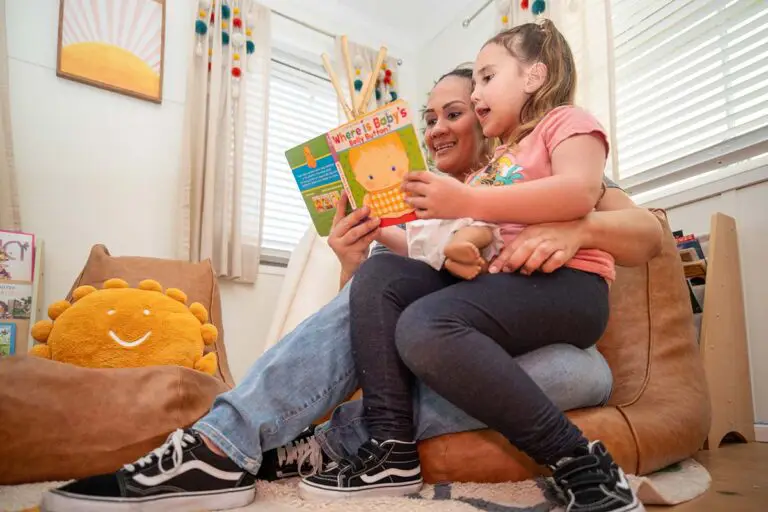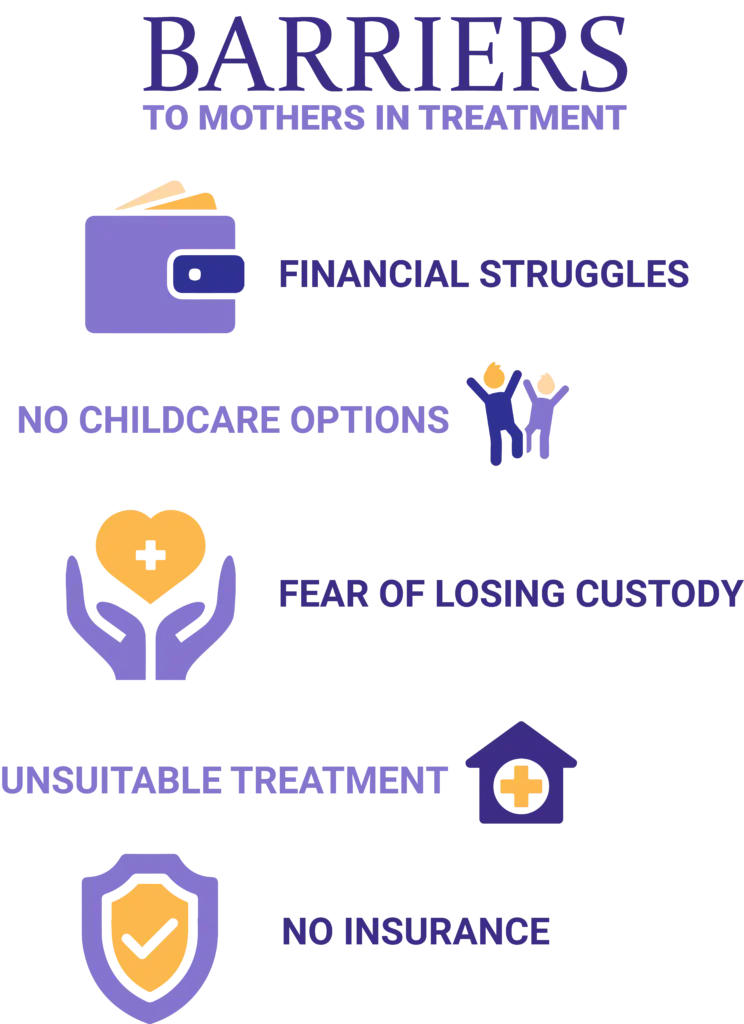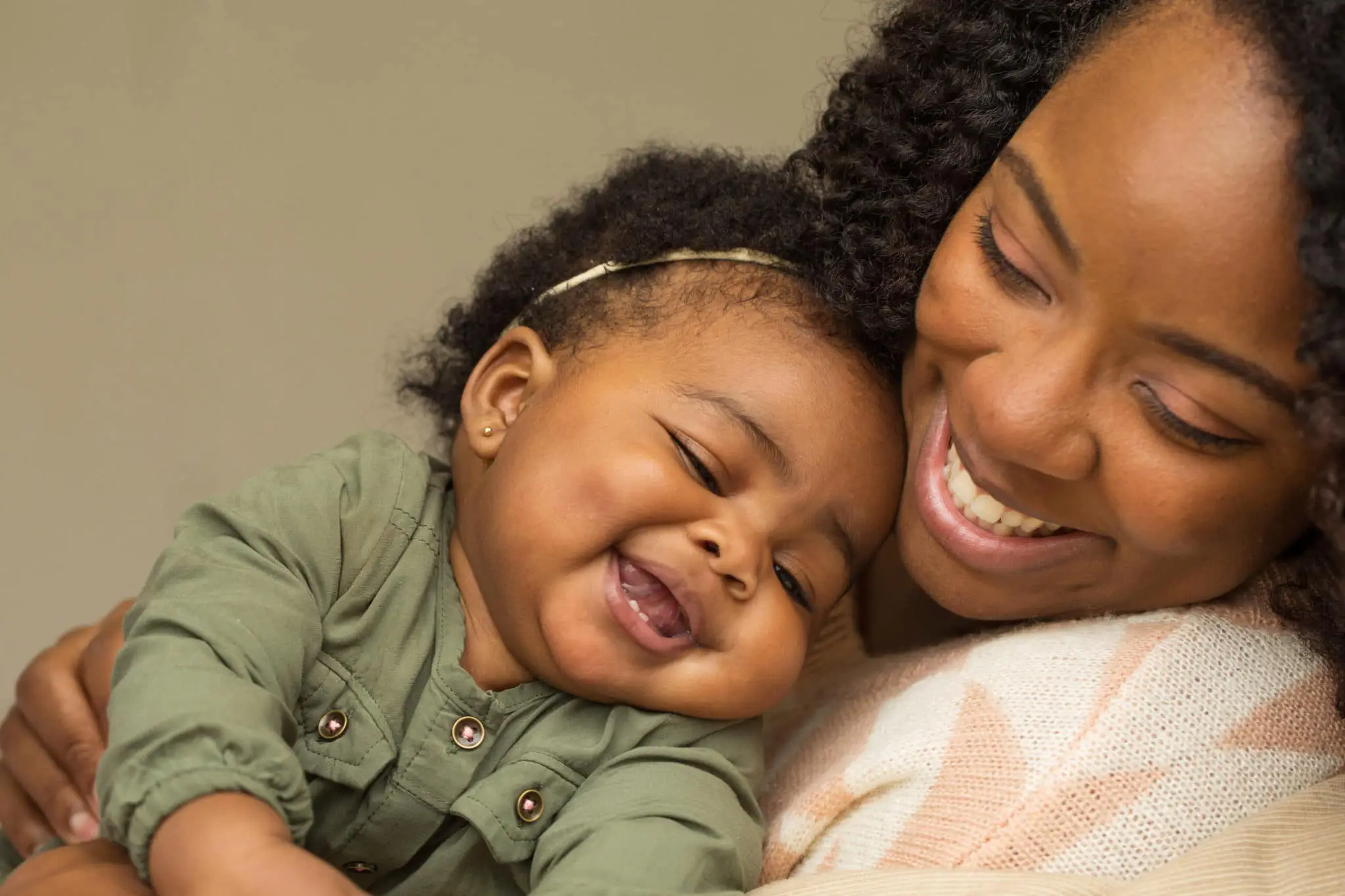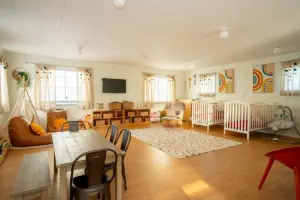
In our experience, gender-specific addiction treatment is important for many reasons. There are special issues for women with children who struggle with finding or committing to a rehab program because:
They don’t want to be away from their children for an extended period of time.
They don’t have anyone to take care of their children while in rehab.
Women are more stigmatized in society if they have an addiction issue.
Women-Only Rehab
Women also face different psychological and physical problems in recovery, their addictions may stem from different causes, and in many cases, the presence of men can make it more difficult for women to recover.
Yet, one of the biggest challenges in rehab for women with children is how to take care of their children during treatment. Not only are women facing the struggles of addiction and getting better, but they are also worried about taking care of their family.
Experts emphasize that children aren’t just a tool for the mother’s recovery. They also benefit. “In the best programs, kids are clients in their own right,” as Nichole Edge, an associate professor at the University of Arkansas for Medical Science, explains.
Edge points out that it is an opportunity to evaluate the child’s needs. Most of the children have experienced a variety of traumatic events and mother-and-child facilities make up treatment plans for the children too if needed.
Drug Rehab for Women and Children
According to a 2015 survey from the National Survey on Drug Use and Health, 5.7% of women have a substance use disorder in the United States and being separated from a child, or the possibility of it creates a variety of potential issues. There are a limited number of specialized rehab for women with children and the ones that do exist are improving the lives of the parents and keeping the family together.
Therefore, we offer full family and children services to clients at New Directions for Women. This allows the mother to recover from her substance use disorder (SUD) while learning the skills needed to stay abstinent while providing a safe and stable situation for the children.
Part of this program involves treating children regardless of whether or not they live with their mom throughout drug rehab for women with children. When necessary they receive individual treatments to address their specific needs, including early interventions and counseling services.
Types of Treatment for Women With Addiction
The first step in treatment is for women and their children to have a professional medical assessment done to determine the correct care plan for the individual and the child(ren).
Detox
To start treatment, a woman must be completely free of drugs and alcohol. Most people need to go through the “detox” phase to achieve this which includes cleansing the body from all the drugs or alcohol being used. A medically supervised detox is helpful to ease the withdrawal symptoms and watch for any emergencies.
Cognitive Behavior Therapy (CBT)
Both women and their children will need to meet for therapy with a mental health professional or psychologist to determine the best mode of treatment necessary. CBT is a type of talk therapy that helps people find new ways to behave by changing their thought patterns. The basis is that the way we think and interpret events in our lives affects how we behave and then how we feel. It can reduce stress, help cope with relationships, and other common life challenges.
Holistic Care
Holistic therapy considers the whole person—mind, body, spirit (if you’re spiritual), and emotions. Aromatherapy and mindful meditation are examples of holistic techniques. Drug rehab for women with children using holistic techniques encourages recovery and helps in avoiding a relapse.

Childcare or Parenting
Women in treatment are offered childcare options for their children so that they can be cared for appropriately while the mother attends necessary treatment programs. School-age children will attend school during the day while their mother attends her therapy and counseling sessions. In particular, counseling helps mothers and children build emotional strength and deepen their resilience in the face of challenges.
Women in treatment face many barriers that make it difficult for them to get the help they need and move into recovery. Some of the most common barriers include:
- Financial struggles
- No childcare options for their children
- No insurance
- Fear that they will lose custody of their children
- Not able to find suitable treatment programs
So, can a mother lose custody for drug use? In some cases, yes. Read on to learn how New Directions for Women can help you and your family get on the right path.
Children With Addicted Parents and Therapy
Substance use can make home a dangerous place for children. The addicted parent may not work or be able to maintain an income. The potential for abuse rises in households where one or more parents have a substance use disorder.
The lack of stability can negatively affect the emotional development of the children. They may feel lost, lonely, and stressed. New Directions for Women offers drug rehab for women with children so that they can be the most successful in their recovery journey.
Risks for Children of Addicts
- Trauma – Many children of alcoholic parents develop trauma symptoms of PTSD (post-traumatic stress disorder) including memories and flashbacks.
- Second-Hand Drinking – The toxic stress effect that an alcoholic has on their children can be relentless. It can result in addiction being passed to the next generation.
- Shame, guilt, and loneliness
- Fetal alcohol syndrome
Alcoholic mothers can impact their daughter in specific ways. Read more about the effects of an alcoholic mother on her daughter, including the emotional impact, psychological consequences, physical health effects, and how we at New Directions for Women can help you break the cycle.
Types of Treatment for Children
At New Directions for women, children receive a variety of therapies including:
- Storytelling
- Art
- Recreation
- Journaling
- Role Playing
If they’re of school age, they’re enrolled in the Newport Mesa School District, and our counselors encourage them to develop a healthy sense of participation in summer camp programs, extracurricular activities, as well as educational programs. Where appropriate, they also participate in 12-step programs.
Benefits of Drug Rehab for Women and Children
During rehab, many women experience the most vulnerable and difficult period of their life. As much as we try to ease the process, it will always be a challenge. But experience shows that both parents and children thrive in rehab programs for women with children. This is because these specialized programs can quickly pinpoint the negative behaviors the mother struggles with while she receives the support of living with other similarly situated recovering moms.
It’s our experience that substance use disorders place a significant strain on the family, and this is not limited to children. Spouses may become irritated at their partner’s lack of control. Children too can become angry and resentful because they do not understand the nature of addiction. While many support groups offer some guidance on how wives and mothers can approach these problems, it’s often not enough.

Healing the Family During Addiction
Our therapists offer professional guidance both to our clients and their families on dealing with and understanding addiction. Everyone must understand that it is a brain disease, not a choice. Once everyone involved understands the problem, as well as how they can help and how they can facilitate their loved one’s recovery, emotional wounds start to heal. Cracks and gaps which were originally opened by the problems of drug abuse start to close.
We are committed to healing, not just the client but their whole family, all of whom have been invariably affected by chemical dependency. It has been said that if one member of a family has a SUD, all members of the family have a SUD. All parties involved will benefit from the education that is gained from family therapy.
Start Your New Direction Now
 New Directions is for people who live with or regularly relate to someone who has been diagnosed with substance use disorder. And for those of you who are struggling with addiction, New Directions for Women will support and encourage you. This is the time to commit to being involved with our mother and child residential treatment centers in Orange County so that you too can start the process of recovery. This is because we understand chemical dependency should be treated from the view of a family disease.
New Directions is for people who live with or regularly relate to someone who has been diagnosed with substance use disorder. And for those of you who are struggling with addiction, New Directions for Women will support and encourage you. This is the time to commit to being involved with our mother and child residential treatment centers in Orange County so that you too can start the process of recovery. This is because we understand chemical dependency should be treated from the view of a family disease.
People who have experienced the pains of false hopes, broken promises, and other common side effects of addiction deserve an opportunity to both identify and voice their feelings. We honestly and openly work with all family members of a client to develop a deeper understanding of themselves and help re-develop the kind of relationship they deserve to have with a loved one suffering from dependency. For more information, get in touch with New Directions for Women, one of the only mother and child residential treatment centers in Orange County. Here, you’ll find the safest, most loving and effective treatment for women struggling with addiction—and a way forward.
Frequently Asked Questions About Rehab for Mothers
What is rehab for mothers?
Rehab for mothers is a specialized form of rehabilitation designed to address substance abuse or addiction issues, while also considering the unique needs and responsibilities of mothers. The goal is to serve both mother and child, first by keeping them together and second by offering specialized care. These programs might also be referred to as “women-only rehab” or “mother and child residential treatment centers” in Orange County.
Why might a mother need rehab?
Mothers may need rehab for various reasons, including struggling with substance abuse, addiction, mental health issues, trauma, or co-occurring disorders that impact their ability to care for themselves and their children.
How does rehab for mothers differ from standard rehab programs?
Our rehab for mothers incorporates family therapy, parenting skills training, and childcare support to address the challenges and responsibilities of parenting while undergoing treatment. We also offer specialized services such as prenatal care, childcare during therapy sessions, and support in rebuilding relationships with children.
What types of treatment are offered in rehab for mothers?
Our treatment in rehab for mothers includes individual therapy, group therapy, medication-assisted treatment (if needed), parenting classes, life skills training, childcare, relapse prevention education, and holistic therapies like yoga or art therapy.
Will I be able to see my children during rehab?
At New Directions for Women, some of our clients live with their young children on site, with the child supervised during therapy sessions and with their mother the rest of the time. For mothers who do not bring their children on site, we offer visitation wherever possible.
How long does rehab for mothers typically last?
The duration of rehab for mothers can vary depending on the individual’s needs and the severity of their addiction. Programs may range from a few weeks to several months, with options for both inpatient and outpatient treatment.
Will I receive support after completing rehab?
Absolutely. Our rehab for mothers offers aftercare services, including continued therapy, support groups, sober living arrangements, and assistance in accessing community resources to help mothers maintain their sobriety and parenting skills after leaving the program.
Is rehab for mothers confidential?
Yes, our rehab program adheres to strict confidentiality guidelines to protect the privacy of our clients, including mothers. Information shared during therapy sessions or treatment planning is typically kept confidential unless there are legal or safety concerns that require disclosure.
Will rehab for mothers help me regain custody of my children?
Rehab for mothers can be a crucial step in demonstrating to the court and child welfare agencies that you are committed to addressing your substance abuse issues and providing a safe and stable environment for your children. However, regaining custody depends on various factors, including compliance with treatment, ongoing sobriety, participation in parenting programs, and meeting the requirements set by the court or child welfare authorities.



